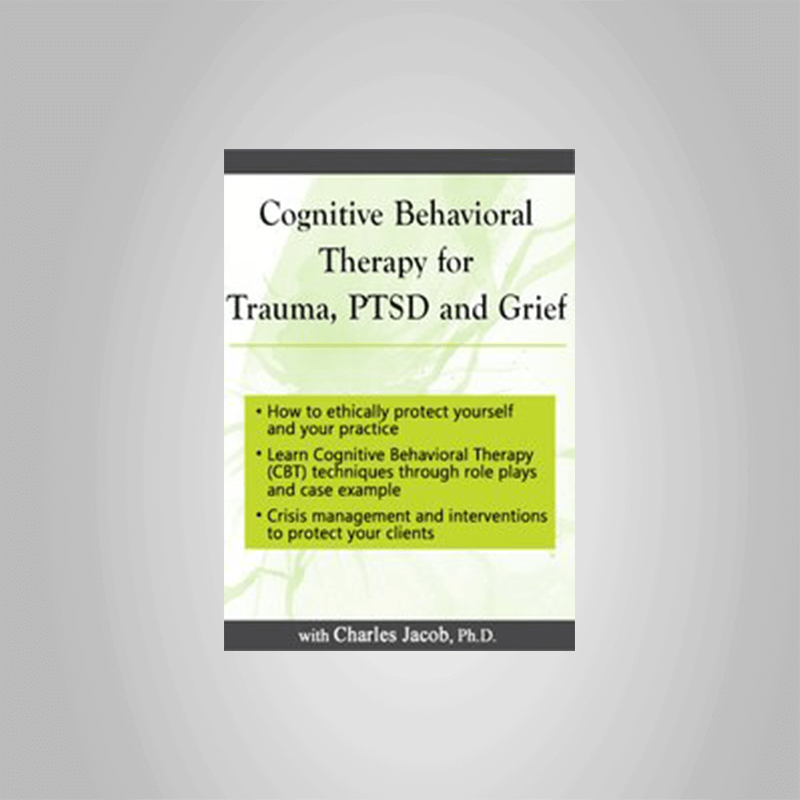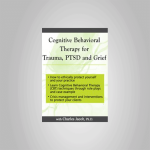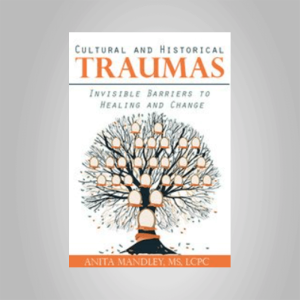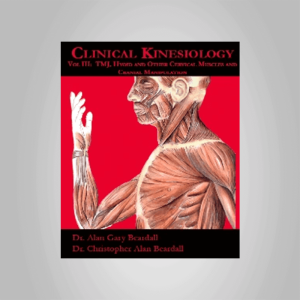Charles Jacob – Cognitive Behavioral Therapy for Trauma, PTSD and GriefDescriptionHow to ethically protect yourself and your practiceLearn Cognitive Behavioral Therapy (CBT) techniques through role plays and case exampleCrisis management and interventions to protect your clientsTrauma, grief and loss are regular aspects of your practice; and yet, you may not really be aware of what works and what doesn’t work in helping clients move forward with their lives. You might even be causing your clients (and yourself) more harm…This seminar pulls from cutting edge research to help you identify effective Cognitive Behavioral Therapy (CBT)-focused interventions to help clients cope in the aftermath of trauma, PTSD, grief and loss. It has been shown that CBT techniques are a powerful tool for trauma and PTSD. You will have an opportunity to put these new skills to practice during role-playing exercises and case examples throughout the day.When working with clients suffering from trauma, grief and loss, you need to be aware of the risk factors for you, your practice and your clients. This seminar will address ways to effectively deal with crisis management and summarize how to be sure your clients are safe and using best practices to avoid litigation.Vicarious trauma of the therapist (you!) is another serious problem that comes along with these clients. Caring for the self is equally important for you to be the best therapist you can be. This seminar will teach you mindfulness skills to use as a protective tool, as well as CBT techniques to help heal vicarious trauma that may affect your practice and your personal life.HandoutsManual (3.50 MB) 32 Pages Available after PurchaseOutlineHealing Grief and LossCBT as conceptual frameworkTiming and techniques for specific interventionsWhen to use CBTWhen to use other techniques for griefCBT Techniques for Trauma and PTSDEssentials of exposure-based treatmentExposure-based treatment to manage symptoms of PTSDClinical assessment and CBT-based trauma treatmentStructured assessment methodsLess formal assessment methodsCBT Treatment strategies for trauma and PTSDCritical Incident Stress DebriefingSpecific techniquesInterfering with the natural process of copingProchaska’s model as a guide for interventionRecovered memory techniques and the treatment of dissociationRole playing exercises/Case examplesCBT for Managing Crisis and Crisis InterventionEssentials and risk factorsCBT techniques to keep your clients safeMatching versus calmingBreathing exercisesCBT and safety planningSpecifics of assessment and crisis planningConcerns and criticism regarding safety contractsRole playing exercises/Case examplesKeeping You and Your Practice SafeEthically work with these difficult clientsDocumentation and lessening risks for litigationBest practices in the event of a lawsuitManage personal anxiety in the aftermath of losing a clientBeing aware of your vicarious traumaCBT to conceptualize personal and professional impairmentDifference of self-care and mindfulnessMindfulness-based interventionsFacultyCharles Jacob, Ph.D.Charles Jacob, PhD, is a psychologist with over 15 years of clinical experience conducting and overseeing the delivery of mental health services to individuals with severe mood and personality disorders as well as their families. He is past president of the Pennsylvania branch of the American Counseling Association and maintains a robust private practice in the suburbs of Philadelphia as a licensed psychologist, professional counselor and marriage and family therapist.In addition to training in Dialectical Behavior Therapy for the treatment of borderline personality disorder, Dr. Jacob is an expert in Cognitive Therapy and a highly regarded clinician and scholar. He is a recipient of PCA’s David W. Hall Advocacy Award, and has been a featured interview in Counseling Today as well as NPR’s The Pulse. Dr. Jacob is a full time faculty member in the Human Development Quantitative Methods Division at the University of Pennsylvania’s Graduate School of Education. He received his PhD from The Pennsylvania State University and completed a year of additional training at the Center for Cognitive Therapy at the University of Pennsylvania.Speaker Disclosures:Financial: Charles Jacob is in private practice. He receives a speaking honorarium from PESI, Inc.Non-financial: Charles Jacob is a member of the Pennsylvania Counseling Association; American Counseling Association; and the American Mental Health Counseling Association.
 Charles Jacob – 3-Day: Dialectical Behavior Therapy Certification Training
₹14,774.00
Charles Jacob – 3-Day: Dialectical Behavior Therapy Certification Training
₹14,774.00
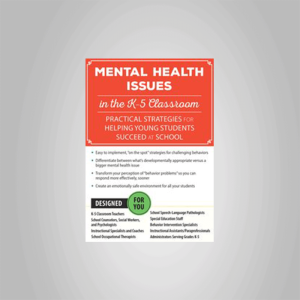 Cheryl Catron – Mental Health Issues in the K-5 Classroom: Practical Strategies for Helping Young Students Succeed at School
₹5,810.00
Cheryl Catron – Mental Health Issues in the K-5 Classroom: Practical Strategies for Helping Young Students Succeed at School
₹5,810.00
Charles Jacob – Cognitive Behavioral Therapy for Trauma, PTSD and Grief
₹5,810.00

